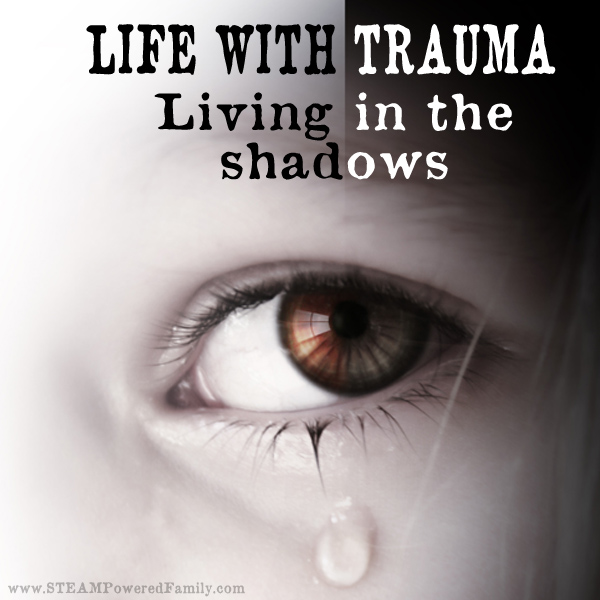<center><h1>Understanding traumatic events in our lives and how do we react from it</h1></center>
<center><br/>[Image Source](https://www.steampoweredfamily.com)<br/></center>
We could attempt to build up some sort of agreement about specific events being traumatic due to their exceptionally nature. One could contend that any event could be traumatic on the off chance that someone responds in an amazingly distressed and debilitating manner to that event, as it were, trauma is a subjective phenomenon.
The academic clinical literature on this theme has a tendency to sway between these two rather outrageous ways to deal with the meaning of trauma. At first, when the idea of PTSD was first presented as a formal psychiatric diagnosis, there was an unmistakable view that traumatic events must be those outside the scope of normal human experience and ones that would be detectably distressing to nearly anybody.
<strong></strong>
<strong>Stressors delivering traumatic disorder</strong>
* Natural disasters
* Accidental man-made disasters
* Deliberate man-made disasters
<strong></strong>
A few stressors every now and again create the disorder and others deliver it just at times. As often as possible there is a corresponding physical segment to the trauma which may even include guide harm to the focal nervous system, for example, malnutrition, head trauma. The disorder is evidently more extreme and longer enduring when the stressor is of human plan.
The reaction from the clinical and research group to these dictats was to some degree blended. It appeared to be obvious from the proposed meaning of trauma that specific events, similar to earthquakes, airplane crashes, war et cetera, satisfied the new criteria and could securely be named as traumas. Nonetheless, shouldn't something be said about, for instance, the passing of a friend or family member through cancer?
<center><br/>[Image Source](https://www.yimg.com)<br/></center>
Individuals create extraordinary mental distress looked with such an experience yet it can't generally be named an event outside the scope of normal human experience. Be that as it may, thinking about this sort of event as non-traumatic does not appear to be correct either.
*Is it not sensible to propose that individuals who are in distress, paying little heed to the events that they have experienced, need support, support and comprehension?*
*Would it be a good idea for us to not be occupied with understanding the nature of any type of mental distress, not simply types of distress that take after a specific, outlined sort of event?*
The main explanation behind such a solid accentuation in the clinical and research literature on a correct meaning of a traumatic event is that, having experienced antagonistic responses to specific events, many individuals will seek after case through the courts to acquire some type of remuneration for their loss. Now, the universe of psychology and psychiatry crashes into the universe of enactment and lawyers.
The law contends that a totally subjective meaning of trauma would open the floodgates to thousands of individuals looking for pay for any experience they didn't care for. As things stand, accordingly, the legal systems in the UK, Europe, and whatever is left of the world require tight meanings of the kinds of events that people can seek after remuneration for. Henceforth the to some degree undesirable accentuation on correct meanings of what constitutes a trauma in the current literature.
<center><br/>[Image Source](https://americanspcc.org)<br/></center>
<strong></strong>
<strong>Distinctive responses to trauma</strong>
Following presentation to trauma, individuals every now and again experience a scope of emotional, cognitive, behavioral, and physical issues. Regularly these issues constellate into discrete psychiatric disorders, for example, depression, anxiety disorders, PTSD and additionally significant changes in personality. So also, traumatized people experience a scope of issues that fall outside these fairly delimited, psychiatric classifications. Feelings, for example, blame, disgrace, fierceness, outrage, and disturb are regularly exceptionally predominant and outrageous.
Behavioral issues, for example, outrage upheavals, rest unsettling influence, social shirking and over the top checking and cleaning are additionally visit. Not every person's response to trauma is profoundly negative along these lines, in any case, there are others for whom traumatic events appear to be minimal more than minor disturbances in the section of life and these people remain strikingly unscarred by their experiences.
For a few, there are frequently positive mental responses to trauma, for example, an expanded capacity to value the delicate nature of life and the issues that other individuals may endure.
<center><br/>[Image Source](https://www.brainyquote.com)<br/></center>
References:
<a href="https://en.wikipedia.org/wiki/Psychological_trauma">Psychological Trauma</a>
<a href="https://www.helpguide.org/articles/ptsd-trauma/coping-with-emotional-and-psychological-trauma.htm">Emotional and Psychological Trauma</a>
<a href="http://phoenixaustralia.org/recovery/what-are-traumatic-events/">What Are Traumatic Events</a>
<a href="https://www.healthline.com/health/traumatic-events#responses-to-trauma">Traumatic Events</a>
<a href="https://www.sidran.org/resources/for-survivors-and-loved-ones/what-is-psychological-trauma/">What Is Psychological Trauma?</a>
<a href="https://pdfs.semanticscholar.org/2efc/f09a50fc089284b93e821b8f9db41b62ee33.pdf">Lifetime Events and Posttraumatic Stress Disorder</a><br /><center><hr/><em>Posted from my blog with <a href='https://wordpress.org/plugins/steempress/'>SteemPress</a> : https://steemme.000webhostapp.com/2018/06/understanding-traumatic-events-in-our-lives-and-how-do-we-react-from-it</em><hr/></center>